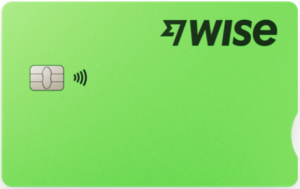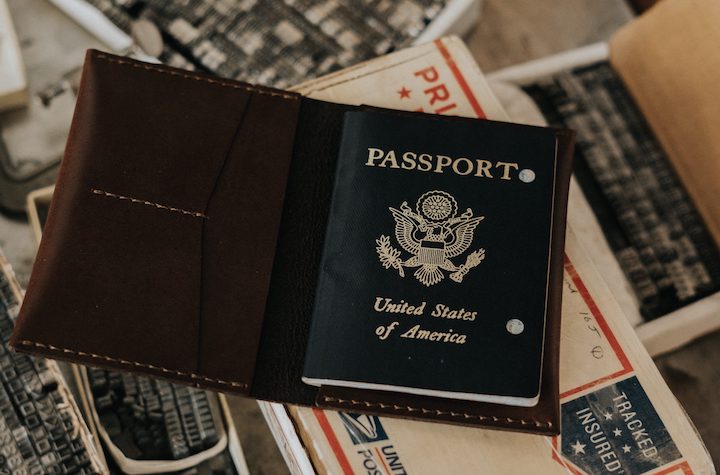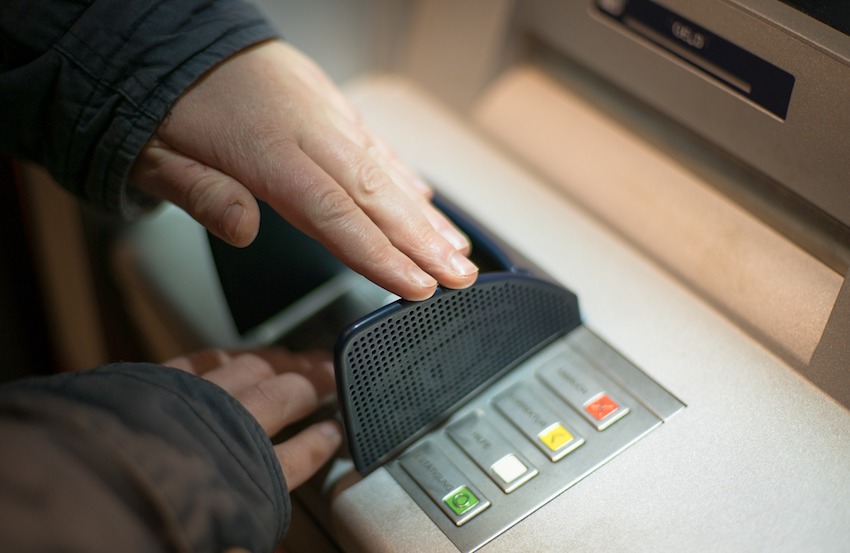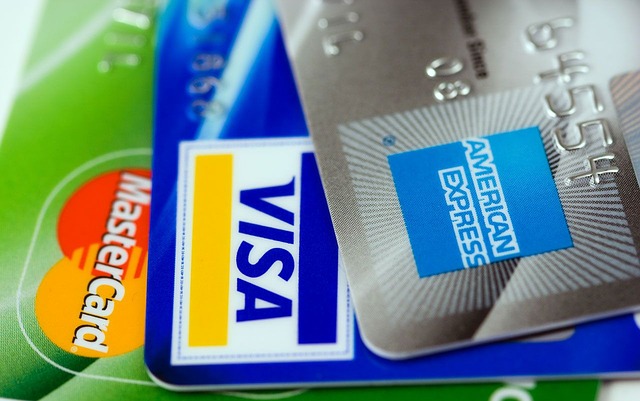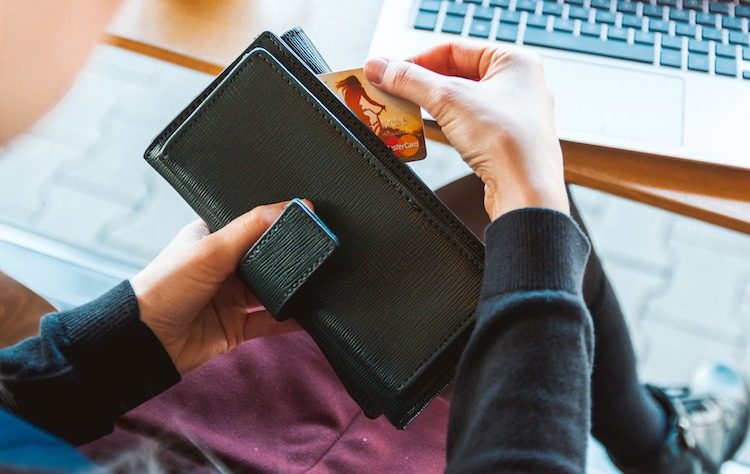8 Travel Traps to Avoid If You're Heading to New Zealand
New Zealand is a super popular destination for Australian travellers, but nothing will mess up a trip to New Zealand quicker than falling into a travel money trap. Read on for some top tips to avoid travel money headaches and save money during your trip to New Zealand.
1. Not taking a prepaid card
Our first point is an important one. Using a prepaid card in New Zealand is a great way to avoid the fees and costly exchange rates that often come with ordinary debit and credit cards, not to mention the theft risk of carrying around large amounts of cash.
The Wise card is a good choice for a prepaid travel card. You get the market exchange rate, low fees and you'll only spend what you put on there.
2. Exchanging money at the Airport
Do not exchange currency at the airport. This goes for before you get on the plane in Australia and when you land in New Zealand. The rates are awful and the fees are high. You are much better off withdrawing cash from an ATM or going to a money exchange shop in a major city that you visit.
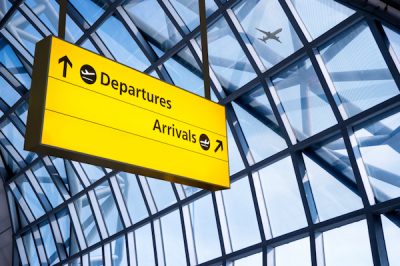

3. Not having different payment methods
Card is becoming more and more accepted in New Zealand. But having said this, there may be times when you will almost definitely need some cash. Having a combination of payment methods such as cash, debit card and credit card means you're covering all bases. As an extra tip, keep your money in different places. If the worst happens and you don't have access to some of your things it will put your mind at ease to know you still have money.
4. Paying in Australian dollars when using your card.
Sometimes when you make a purchase Internationally with your Australian debit or credit card, you will be asked if you want to make the payment in your currency, or the local currency. It is almost always better to pay in the local currency than it is to pay in AUD. The exchange rates are generally awful otherwise.


5. Forgetting to book luggage when you book your flight
Don't get caught out. If you're booking a flight, it can be tempting to save money by not booking any checked luggage. This can be a saving at the time, but it's much more expensive to buy luggage when you're checking in. Even if you're a light traveller, at least consider booking it for your flight home. This way you're covered in case you stock up on souvenirs and shopping.
6. Making too many ATM withdrawals
While it could be better to withdraw money from an ATM than it is to exchange money at the airport, or your hotel you still want to be careful. If you do decide to do this, just try to plan in advance. Because you will almost definitely need to make a withdrawal at some point during your stay in New Zealand, try and withdraw more money, less often. Fees will almost always be a set amount, so lessening the amount of times you're doing it can definitely help you save.


7. Not checking terms and conditions of travel cards
If you're worried about carrying cash, you may be tempted to buy a prepaid currency card. If you do this, just make yourself aware of all the fees and charges involved. Often they are advertised as free but can be expensive to reload and withdraw cash with. You can read more about the best cards to take to New Zealand here.
8. Keeping too much cash on you
Our final tip is to safe guard you and those you are travelling with. If you choose to travel with cash, try to split up where you're keeping it. If you're keeping thousands of New Zealand dollars in your wallet, you're opening yourself to being left in a sticky situation if you lose it or it gets stolen. By keeping some cash on you, and maybe some in your luggage or in the safe at your hotel you will have a back up if the worst happens. But like we said in tip 2, it's best to have a few payment methods on you when you're travelling.

What’s the New Zealand currency?
The official currency in New Zealand is the New Zealand dollar - you’ll see it shown as NZD when looking up exchange rates or converting currency before your trip.
Read more about the currency in New Zealand - and where to buy it - here.
Can I use dollars in New Zealand?
You can’t use your Australian dollars in New Zealand. If you’re carrying cash with you in AUD you’ll need to convert it to NZD before you can spend it - or pick up a low cost travel card for easy payments with low fees, instead.
Where to get New Zealand currency from?
If you’re planning a trip to New Zealand you need convenient ways to spend in NZD while you’re there. The good news is that you have several options, including ways to spend with a card, get NZD in cash, or make withdrawals in NZD on arrival as and when you need them.
Ways to arrange your NZD travel money include:
- Open an online multi-currency account with a provider like Wise or Revolut, to add funds in AUD and convert to NZD in advance or as needed
- Get a travel card from a service like Wise or Revolut and spend and withdraw in NZD - often with no foreign transaction fees
- Convert AUD to NZD at the airport or your hotel - this can be expensive to do, but convenient. Check the fees and rates before you go ahead
- Carry AUD cash and exchange in currency exchange shops in New Zealand, which you’ll find in larger towns and tourist areas
- Buy NZD from your bank in cash - if this service is supported
The different options have their own advantages in terms of cost and convenience so it’s worth weighing up a few to see which meets your specific needs. Read a comprehensive guide on currency in New Zealand.
Other travel money traps to avoid in New Zealand
In general, New Zealand is considered to be a very safe place to travel, so common sense is pretty much all you’ll need to avoid major issues while you’re there. Keep an eye on your belongings, use a secure deposit box or safe in your hotel if you have valuables, and be mindful of pickpockets in crowded places. Aside from that, there are just a couple of other common New Zealand travel money traps it’s worth considering:
Converting more AUD than you need to NZD
If you’re converting money to NZD before you travel, be mindful that switching more than you ultimately need to spend will mean paying conversion fees twice - once to switch to NZD, and then again to convert back to AUD when you get home. This pushes up your fees, and with travel money cards and multi-currency accounts, you really don’t need to convert lots of money all at once if you don’t want to. Get a multi-currency account and card that lets you convert with low fees and the mid-market rate, at the point of purchase, and you avoid the risks of having to pay conversion fees unnecessarily.
Sticking only to very touristy areas
New Zealand has some obvious high profile tourist destinations, but having a lot of tourists pass through can mean prices in the area shoot up. This makes hotels, stores and restaurants pricey, and can mean the quality isn’t that great. After all, when most customers simply pass through, there’s less need to keep up a consistent service standard. Ask around to find local gems wherever you’re staying, which are likely to be a little off the beaten track, but which can mean you get lower costs and a better experience.
Is it better to exchange money in Australia or New Zealand?
The best place to exchange money will depend on the exchange rate you can get - either before you leave or on arrival in New Zealand. You may be able to shop around and get online quotes for exchange rates before you travel - but not all money changers publish their rates, which can make this trickier than you expect.
Using a travel card from a provider like Wise or Revolut can be a good alternative. Add money in AUD from your bank, and then just use the card when you need to pay and withdraw. Both Wise and Revolut have low conversion costs and fair exchange rates, with no foreign transaction fee - which can make them very good value overall.
New Zealand prices
What your trip to New Zealand costs will very much depend on the type of thing you want to do, and how long you’re planning on staying. However, arranging your budget in advance is the best way to make sure you make the most of your money. Here are a few figures to help you plan.
How much does a trip to New Zealand cost from Australia?
Obviously the cost of your flight to New Zealand will depend on when you travel and which airline and class of ticket you pick. At the time of writing (July 2023), flight website Skyscanner reports cheapest ticket prices of around 315 AUD to 350 AUD, with the lowest predicted prices in November and the costs rising in December to fit holiday patterns.
Accommodation
You’ll be able to pick from a broad range of accommodation types and prices, depending on the type of trip you want to take. From budget hostels to high end luxury, you’re well catered in most of the top tourist destinations.
If you’re planning a bit of luxury, you can pay anything from about 150 AUD a night for a double room in a 4 star hotel, through to well over 300 AUD a night based on the location and hotel brand.
Restaurant prices in New Zealand
You’ll not struggle for good, fresh food in New Zealand. You’ll be able to pick up an informal lunch for around 20 AUD, and if you fancy pushing the boat out, a 3 course meal for 2 in a mid-range restaurant will set you back from about 110 AUD, according to cost of living site Numbeo.com.
For more information about New Zealand prices read this guide on how much things cost in New Zealand.
What is the best way to pay in New Zealand?
Card payments are very commonly accepted in New Zealand, although having some cash in your pocket can still be reassuring. For most travellers, using low cost travel cards such as Wise and Revolut is a good option, as you can add money in AUD and tap to pay in stores, with instant currency conversion. You can also use your travel card to make cash withdrawals when you need to.
Using a travel money card means you can easily set your budget for your trip, and manage your money from your phone. Plus options like Wise and Revolut have low fees and great exchange rates, with no foreign transaction fee to pay when you spend in a foreign currency.
Do you need cash in New Zealand?
Cash is often not necessary in New Zealand as cards are often accepted - or even preferred. However, having a selection of ways to pay when you travel works well, so carrying a bit of cash as well as one or two cards including a low cost travel card can be a good plan. This means you have options if you find somewhere which can’t accept a card, or if your card is out of action or unavailable for any reason.
How much cash should I take to New Zealand?
You don’t necessarily need to take any cash with you to New Zealand, as you’ll be able to easily access ATMs to make withdrawals whenever you want to. Grab cash at the airport or in a town, if you’re heading off the beaten track, but most places will let you pay with a card, so you’ll usually be fine.
If you do decide to use cash, don’t carry too much at any one time - it’s not great for security reasons, and can make you a target for thieves.
FAQ - travel money traps to avoid in New Zealand
What is the safest way to take money to New Zealand?
One of the safest and most convenient ways to take your travel money to New Zealand is to get a multi-currency account and card from a service like Wise or Revolut. You can add money in AUD and spend or withdraw in NZD, often with the mid-market exchange rate and no foreign transaction fee. This means you don’t need to carry cash or your regular AUD everyday bank card.
Should I exchange money before I travel to New Zealand?
There’s no need to exchange money before you travel if you don’t want to. A good option is to open a specialist travel money account in advance, from a provider like Wise or Revolut. You’ll be able to use a multi-currency travel card conveniently to spend or make withdrawals, with fair exchange rates and no foreign transaction fees.
Is it better to use cash or card in New Zealand?
It’s almost always best to have several different ways to pay when you travel. So, carrying a bank card, a travel money card, and a small amount of cash, for example, can be a smart move. Use your travel money card to spend and withdraw with minimum fees, and keep your normal bank card somewhere secure as a back up.
Need to know more about travelling to New Zealand?

